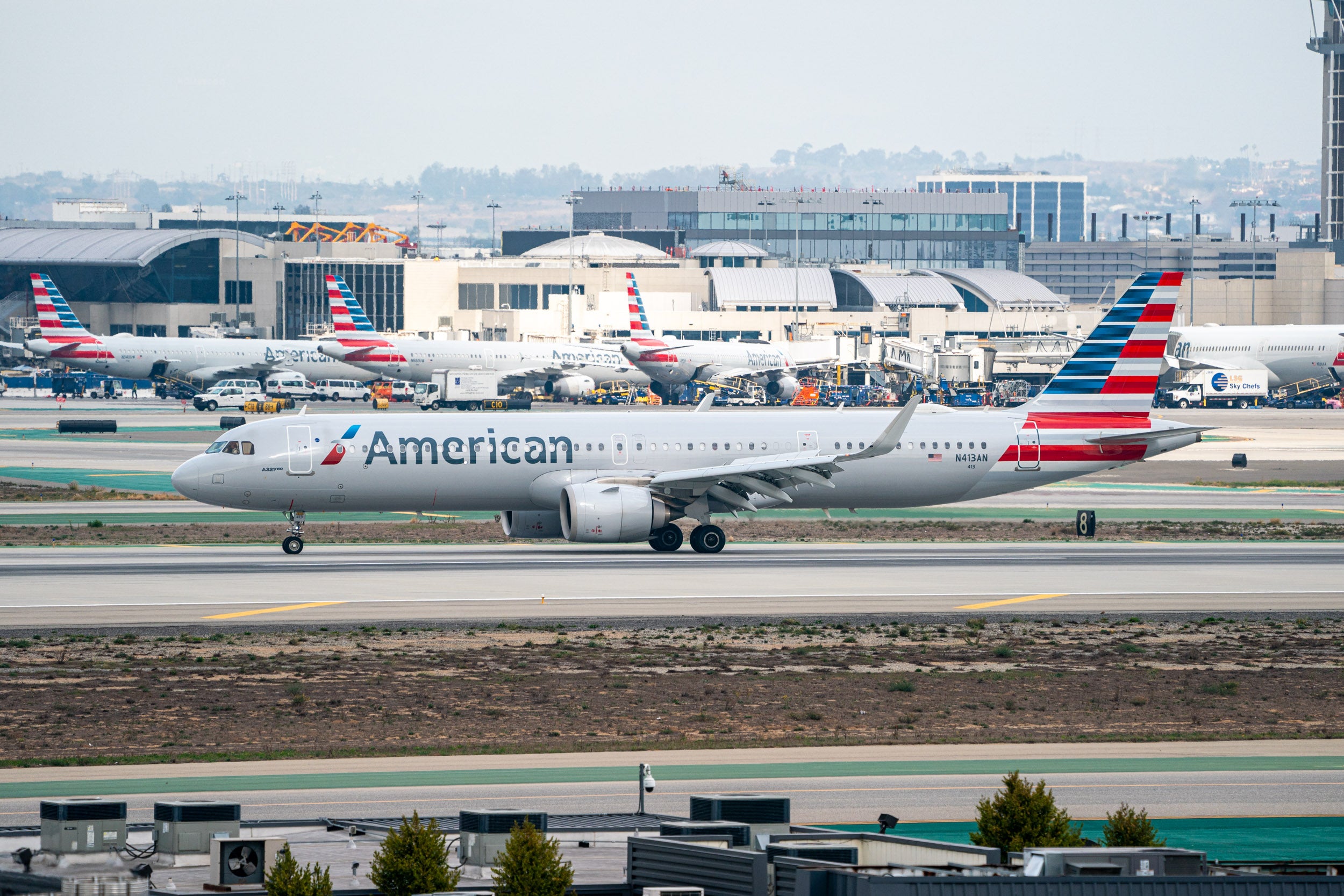American Airlines orders 260 new narrowbody jets, including Boeing 737 MAX 10
American Airlines said on Monday that it had ordered 260 new narrowbody jets to continue building out its fleet and expanding in domestic and short-haul international markets.
The order includes 85 Airbus A321neo aircraft, along with 90 Embraer E175 regional jets that will be used by American’s wholly-owned regional carriers.
The order also includes 85 new Boeing 737 MAX 10 aircraft, the largest variant of Boeing’s workhorse narrow-body. The MAX 10, along with the smallest variant, the MAX 7, are still in development and have not yet been certified by regulators.
Want more airline-specific news? Sign up for TPG’s free biweekly Aviation newsletter.
American also said that it would retrofit its existing fleet of Airbus A319 and A320 aircraft with new interiors, larger overhead bins and power outlets at every seat. As part of the retrofit, American will increase the number of first class seats on those jets, adding four seats for a total of 12 on the A319, and four seats for a total of 16 on the A320.
The airline said that it will use the aircraft from the new order to upgauge some domestic and short-haul routes to larger jets as it continues to expand in the domestic market, and to make sure it has more premium-heavy aircraft in its fleet. The airline said that the new aircraft figure into its existing capacity plan.
“Over the past decade, we have invested heavily to modernize and simplify our fleet, which is the largest and youngest among U.S. network carriers,” American Airlines CEO Robert Isom said in a statement. “These orders will continue to fuel our fleet with newer, more efficient aircraft so we can continue to deliver the best network and record-setting operational reliability for our customers.”
The 737 MAX 10 order, in particular, will be focused on bringing bigger aircraft to some routes and add more flexibility to the fleet, the airline said.
The announcement comes a week after United Airlines, which has 277 of the MAX 10 on order, removed the aircraft from its fleet plans until at least 2026. Boeing has faced production and certification delays on the new aircraft, which are expected to continue as the planemaker faces increased regulatory scrutiny and works to shore up its quality control practices after an accident involving an Alaska Airlines 737 MAX 9 in January.

Daily Newsletter
Reward your inbox with the TPG Daily newsletter
Join over 700,000 readers for breaking news, in-depth guides and exclusive deals from TPG’s experts
No one was seriously hurt during the incident, which saw a panel ejected from the aircraft’s fuselage as it departed from Portland, causing the cabin to rapidly repressurize. However, that was largely down to luck, according to investigators, who found that Boeing had likely failed to replace bolts after removing the panel during the plane’s final assembly.
Despite frustrations over quality control and timelines, however, the MAX 10 remains eagerly awaited by a variety of airlines across the world. With American’s announcement, the three major U.S. airlines — American, United, and Delta Air Lines — all have orders pending for the jet. Its operational parameters and capacity are expected to drive strong margins for airlines, while it’s expected to retain the general reliability that has come to characterize the 737 for operators, including the MAX, outside of the several standout issues that have occurred, such as the current crisis for Boeing.
Related: We got a first look inside Boeing’s prototype 737 MAX 10
On the opposite end of the size spectrum, American said that the Embraer E175 regional jets in its order will be used to upgague its regional airlines, allowing them to carry more capacity as American’s regional carriers retire their smallest 50-seat aircraft by 2030.
The E175 jets, which have 76 seats in American’s current layout, will make up the airline’s entire regional fleet by the time the order is fully delivered, the airline said.
American has several regional airlines that operate flights on its behalf from smaller markets to its hubs, similar to most major network airlines. Of the regional airlines that operate for American, several are wholly-owned subsidiaries of the larger carrier: Envoy Air, Piedmont Airlines and PSA Airlines.
The order comes as airlines struggle to find enough aircraft to fill their fleet plans. Ongoing supply chain and production issues stemming partly from the pandemic have led to a surging demand for aircraft with order slots largely full through the end of the decade.

